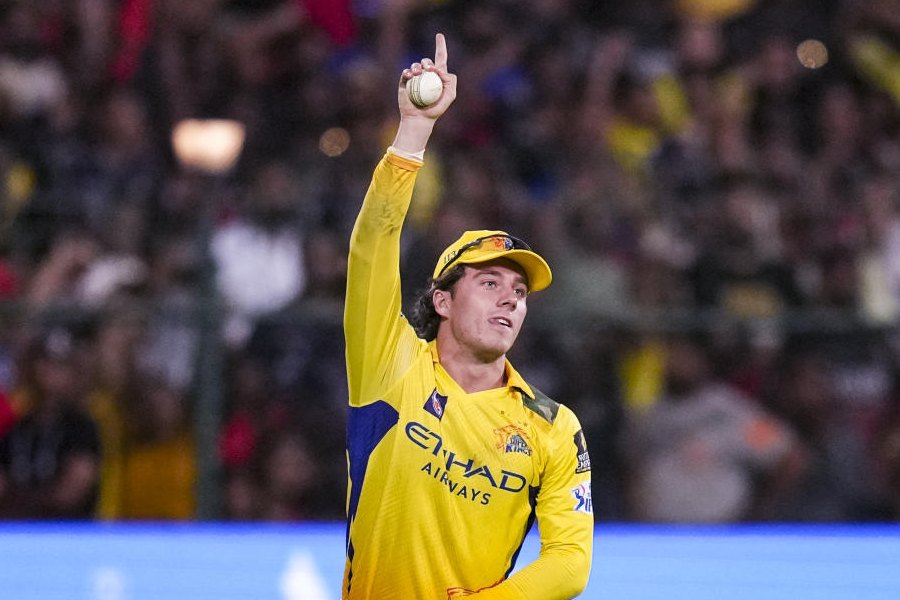Chennai Super Kings’ in-form batter Dewald Brevis’ dismissal for a golden duck against Royal Challengers Bengaluru at M Chinnaswamy stadium on Saturday, after being denied a review due to a lapsed 15-second window — despite replays later showing the ball missing the stumps by a wide margin, has sparked renewed over the DRS system.
The South African batter was given out LBW off the very first ball he faced from Lungi Ngidi. Although the ball looked to be drifting down leg, the on-field umpire raised the finger, and Brevis, after a brief chat with Ravindra Jadeja, signalled for a DRS review.
It was already too late.
Brevis was informed that the 15-second review window had expired. Replays later showed the ball missing the stumps by a wide margin. The missed review, followed by the eventual confirmation that the on-field decision was incorrect, became a flashpoint, raising questions about both the umpire’s judgment and the practical visibility of the DRS timer for players in real-time match conditions.
Brevis and Jadeja appeared to be confused after the incident and even had a short argument with the umpire. It has later emerged that Brevis might not have seen the DRS timer on the big screen, assuming there was still time to decide.
CSK went on to lose the match by two runs. Despite Ayush Mhatre’s 94 and Jadeja’s unbeaten 77, the Chennai-based side failed to chase the target and remain at the bottom of the IPL 2025 points table.
Stephen Fleming, CSK’s head coach, addressed the controversy after the match. “In talking to Jaddu and Brevis, there was a lot going on with running straight away. I think they saw the ball ricochet and actually went to the boundary for four. And lost in that was whether Brevis took the review in time. I don't know the answer to that. He wasn't sure, given that they were running at the time,” he said.
“As soon as you're given out, I understand the timer starts. There was a fair bit eaten up with the play still being completed, and whether they just ran out of time... in the umpire's view, it did. The other part about it, because he was given out, we wouldn't have got the runs. While we would have maintained the wicket, it certainly wouldn't have given us the five runs, which would have been nice. But it's a big moment in a big game,” Fleming added.
Former Indian cricketer Irfan Pathan shared his thoughts on X: “Timer or no timer but that was a horrible decision against Dewald Brevis.”
According to IPL 2025’s playing conditions, “The total time elapsed between the ball becoming dead and the review request being made shall be no more than 15 seconds. If the on-field umpires believe that a request has not been made within the 15-second time limit, they shall decline the request for a player review.”
One user wrote on X, “CSK would have won this match if Brevis was given not out. Well paid Royal Fixers Bangalore.”
Another pointed the fingers at the batters: “The umpire’s call was wrong, no doubt but with 42 needed off 22 and Brevis just arriving, you were the pillar of the chase. Out or not, a review was a must. Big moments demand sharp decisions.”
A third user posted images with timestamps and said, “To those crying #fixing, Brevis took 24 seconds from the time he was given out (The time between the below 2 images), while you only get 15 seconds to review as a batter. He's got only Himself and Jadeja to blame.”
The incident has once again brought focus on the need for better communication and technological clarity in high-pressure T20 matches, where a few seconds, or the lack of a visible timer, can change the outcome.










